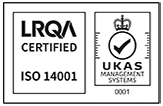Undertaking a home renovation project can be an exciting project, but it inevitably involves the task of disposing of the waste generated during the process. From old fixtures and fittings to demolition debris, home renovations can produce a substantial amount of waste that needs to be properly disposed of. In this blog post, we’ll outline the most effective methods for home renovation waste disposal, including the benefits of hiring a skip, what can and cannot go in a skip, and alternative disposal options where required.
Understanding common types of home renovation waste
Before diving into home renovation waste disposal solutions, it’s essential to understand the types of waste commonly produced during the process. This may include:
- Demolition debris such as bricks, tiles, glass, concrete, lumber and rubble
- Old fixtures and fittings like sinks, toilets and cabinets
- Scrap wood, metal and plasterboard
- Packaging materials from new materials and appliances
Domestic renovation can produce just over 27kg of waste per square foot emphasising the importance of waste management planning during your refurbishment.
Advantages of hiring a skip
A ‘man with a van’, filling up the boot of your car and driving multiple times a day to your local tip or dumpsite, and skip bags (essentially large durable waterproof bags) are all alternatives to hiring a skip when it comes to home renovation waste disposal. However, none of these options truly encapsulate the advantages offered by hiring a skip:




What can and cannot go in a skip
While hiring a skip offers a number of benefits, it’s essential to know what can and cannot be disposed of in a skip. Generally, you can put most non-hazardous waste in a skip, including:
- General household waste
- Garden waste
- Construction and demolition debris
- Old furniture and appliances
When it comes to the disposal of wood waste such as off-cuts, furniture without metal or glass attachments, pallets and crates etc. wood-only skips are available to hire. This specialised waste management approach facilitates the recycling or proper disposal of wooden items. Our own wood recycling system at our Energy Recovery Facility in Lancing, West Sussex, converts wood waste into renewable energy. Find out more about Rabbit’s wood-only skips here.
Specific items are prohibited from skips due to safety and environmental concerns, including:
- Asbestos
- Batteries
- Paints and solvents, as well as old plasterboard
- Electrical appliances
- Hazardous chemicals, such as POPS (Persistent Organic Pollutants) which are found in mattresses, sofas, sofa beds, armchairs, beanbags, sofa cushions
Disposing of waste that cannot go in a skip
For items that cannot be disposed of in a skip, such as hazardous materials or large appliances, alternative disposal methods must be utilised. This may involve arranging for specialised waste collection services or taking items to a designated disposal facility. For example, electrical appliances must be taken to your nearest local council electronics recycling centre, while old batteries can be taken to supermarkets or electronic retailers for recycling.
It’s imperative to adhere to local regulations and guidelines when disposing of hazardous waste to guarantee both compliance and safety. Each regional authority may have specific rules for governing the handling, transportation, and disposal of hazardous waste, including requirements for proper labelling, storage, and documentation. Additionally, certain hazardous materials may require special treatment or disposal methods to minimise risks to human health and the environment.
Minimising home renovation waste disposal risks
Home renovation projects pose various risks and dangers, particularly concerning waste management. Improper handling and disposal of construction debris can lead to accidents, injuries, and environmental harm. Therefore, effective management of home renovation waste is crucial for the success and safety of your project. By hiring a skip, understanding what can and cannot go in the skip, and exploring alternative disposal options when necessary, you can ensure a smooth and responsible waste disposal process.
|
Considering a home renovation? |
Rabbit Skip Hire is an established and expert supplier of skips for commercial and domestic projects of all sizes throughout East and West Sussex.
To find out more about Rabbit Skip Hire’s reliable and expert skip hire contact our expert and friendly team on 01903 762020, email info@rabbitgroup.co.uk or fill out our online skip hire contact form.
Rabbit Skip Hire is part of Rabbit Waste Management, which includes Rabbit Demolition.





